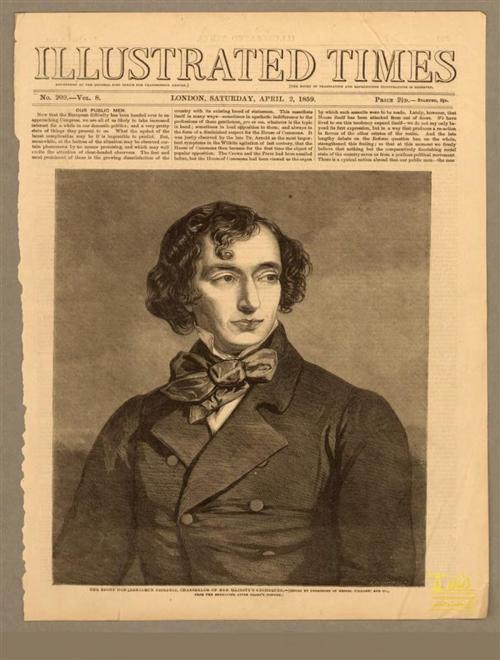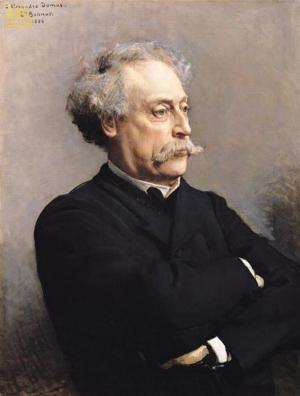The Rise of Iskander
Nonfiction, Entertainment, Drama, Anthologies, Fiction & Literature, Literary Theory & Criticism| Author: | Benjamin Disraeli | ISBN: | 9780599623125 |
| Publisher: | Lighthouse Books for Translation and Publishing | Publication: | August 27, 2019 |
| Imprint: | Language: | English |
| Author: | Benjamin Disraeli |
| ISBN: | 9780599623125 |
| Publisher: | Lighthouse Books for Translation and Publishing |
| Publication: | August 27, 2019 |
| Imprint: | |
| Language: | English |
The Rise of Iskander is the seventh novel written by Benjamin Disraeli who would later become Prime Minister of Great Britain.
Benjamin Disraeli, in full Benjamin Disraeli, earl of Beaconsfield, Viscount Hughenden of Hughenden, byname Dizzy, (born December 21, 1804, London, England—died April 19, 1881, London), British statesman and novelist who was twice prime minister (1868, 1874–80) and who provided the Conservative Party with a twofold policy of Tory democracy and imperialism.
Disraeli was educated at small private schools. At the age of 17 he was articled to a firm of solicitors, but he longed to become notable in a more sensational manner. His first efforts were disastrous. In 1824 he speculated recklessly in South American mining shares, and, when he lost all a year later, he was left so badly in debt that he did not recover until well past middle age. Earlier he had persuaded the publisher John Murray, his father’s friend, to launch a daily newspaper, the Representative. It was a complete failure. Disraeli, unable to pay his promised share of the capital, quarreled with Murray and others. Moreover, in his novel Vivian Grey (1826–27), published anonymously, he lampooned Murray while telling the story of the failure. Disraeli was unmasked as the author, and he was widely criticized.
Disraeli suffered what would later be called a nervous breakdown and did little during the next four years. He wrote another extravagant novel, The Young Duke (1831), and in 1830 began 16 months of travel in the Mediterranean countries and the Middle East. These travels not only furnished him with material for Oriental descriptions he used in later novels but also influenced his attitude in foreign relations with India, Egypt, and Turkey in the 1870s.
Back in England, he was active in London social and literary life, where his dandified dress, conceit and affectation, and exotic good looks made him a striking if not always popular figure. He was invited to fashionable parties and met most of the celebrities of the day. His novel Contarini Fleming (1832) has considerable autobiographical interest, like many of his novels, as well as echoes of his political thought.
By 1831 Disraeli had decided to enter politics and sought a seat in Buckinghamshire, near Wycombe, where his family had settled. As an independent radical, he stood for and lost High Wycombe twice in 1832 and once in 1835. Realizing that he must attach himself to one of the political parties, he made a somewhat eccentric interpretation of Toryism, which some features of his radicalism fitted. In 1835 he unsuccessfully stood for Taunton as the official Conservative candidate. His extravagant behaviour, great debts, and open liaison with Henrietta, wife of Sir Francis Sykes (the prototype of the heroine in his novel Henrietta Temple [1837]), all gave him a dubious reputation. In 1837, however, he successfully stood for Maidstone in Kent as the Conservative candidate. His maiden speech in the House of Commons was a failure. Elaborate metaphors, affected mannerisms, and foppish dress led to his being shouted down. But he was not silenced. He concluded, defiantly and prophetically, “I will sit down now, but the time will come when you will hear me.”
The Rise of Iskander is the seventh novel written by Benjamin Disraeli who would later become Prime Minister of Great Britain.
Benjamin Disraeli, in full Benjamin Disraeli, earl of Beaconsfield, Viscount Hughenden of Hughenden, byname Dizzy, (born December 21, 1804, London, England—died April 19, 1881, London), British statesman and novelist who was twice prime minister (1868, 1874–80) and who provided the Conservative Party with a twofold policy of Tory democracy and imperialism.
Disraeli was educated at small private schools. At the age of 17 he was articled to a firm of solicitors, but he longed to become notable in a more sensational manner. His first efforts were disastrous. In 1824 he speculated recklessly in South American mining shares, and, when he lost all a year later, he was left so badly in debt that he did not recover until well past middle age. Earlier he had persuaded the publisher John Murray, his father’s friend, to launch a daily newspaper, the Representative. It was a complete failure. Disraeli, unable to pay his promised share of the capital, quarreled with Murray and others. Moreover, in his novel Vivian Grey (1826–27), published anonymously, he lampooned Murray while telling the story of the failure. Disraeli was unmasked as the author, and he was widely criticized.
Disraeli suffered what would later be called a nervous breakdown and did little during the next four years. He wrote another extravagant novel, The Young Duke (1831), and in 1830 began 16 months of travel in the Mediterranean countries and the Middle East. These travels not only furnished him with material for Oriental descriptions he used in later novels but also influenced his attitude in foreign relations with India, Egypt, and Turkey in the 1870s.
Back in England, he was active in London social and literary life, where his dandified dress, conceit and affectation, and exotic good looks made him a striking if not always popular figure. He was invited to fashionable parties and met most of the celebrities of the day. His novel Contarini Fleming (1832) has considerable autobiographical interest, like many of his novels, as well as echoes of his political thought.
By 1831 Disraeli had decided to enter politics and sought a seat in Buckinghamshire, near Wycombe, where his family had settled. As an independent radical, he stood for and lost High Wycombe twice in 1832 and once in 1835. Realizing that he must attach himself to one of the political parties, he made a somewhat eccentric interpretation of Toryism, which some features of his radicalism fitted. In 1835 he unsuccessfully stood for Taunton as the official Conservative candidate. His extravagant behaviour, great debts, and open liaison with Henrietta, wife of Sir Francis Sykes (the prototype of the heroine in his novel Henrietta Temple [1837]), all gave him a dubious reputation. In 1837, however, he successfully stood for Maidstone in Kent as the Conservative candidate. His maiden speech in the House of Commons was a failure. Elaborate metaphors, affected mannerisms, and foppish dress led to his being shouted down. But he was not silenced. He concluded, defiantly and prophetically, “I will sit down now, but the time will come when you will hear me.”















